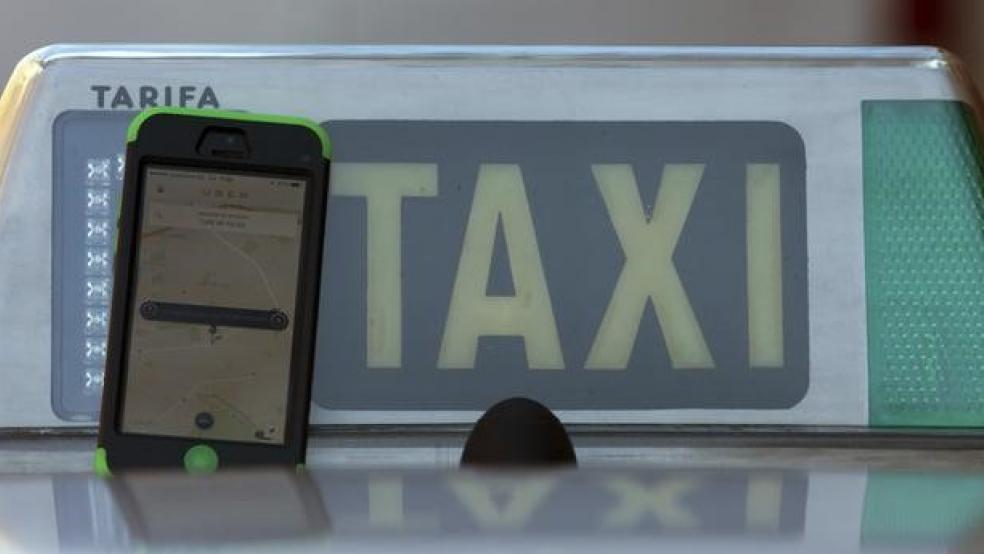Paris was recently beset by a horde of riotous protesters. They besieged the airports, blockaded the thoroughfares with piles of burning tires and assaulted people in the streets. Who were these ruffians? Taxi drivers — almost 3,000 of them — rose up to protest ridesharing services.
The taxi riots in Paris this summer highlight the dangers inherent when governmental power is captured by special interests. Although the French experience with taxi cartels is an extreme example, it provides a useful lesson in the consequences of “regulatory capture.”
Regulatory capture describes the counter-intuitive tendency of governmental authority to be twisted and turned toward the purpose of those interests it originally sought to constrain. It occurs because the regulated industry or group has a strong incentive to be actively involved in influencing which regulations are implemented (and how they are implemented) in order to minimize their undesirable impact — or maximize the harm the regulations inflict on their competition.
Related: How to Make Government Regulation Less Burdensome
Ironically, since the regulated companies possesses the best knowledge about the practices considered for regulation, government officials must often rely on those within the industry itself for assistance in crafting new rules. This imbalance of incentives and information leads to a situation where, according to Nobel laureate George Stigler, “as a rule, regulation is acquired by the industry and is designed and operated primarily for its benefit.”
The Paris taxi market is a perfect example of governmental authority being captured by the industry it ostensibly regulates. Through a mixture of presidential decrees and national laws, politicians have tried to protect the taxi industry from competition by requiring car service companies like Uber, Lyft and their French equivalents, to wait 15 minutes before picking up a passenger. They’ve also outlawed car services’ use of GPS geolocation capabilities to link drivers and passengers — and even mandated oversized engines and minimum car lengths. If French policy makers hesitate in their protectionist interventions, the taxi unions may engage in yet another public tantrum to remind them who is Le Boss.
Unfortunately, the United States is far from immune from this political favoritism, though thankfully the experience is not quite so extreme. The R Street Institute, in an assessment of taxi and car service regulations in 50 U.S. cities, found that every city had laws that hindered equal competition. Shockingly, Washington, D.C., which has a history of taxi corruption, even considered a law that would have required car services like Uber to charge a minimum fare at least five times larger than that charged by taxis. Citing the D.C. Council’s proposal, Mercatus Center Senior Research Fellow Matt Mitchell described it this way: “In a spectacular show of candor, the legislation included language stating that the rationale is to ensure that Uber ‘does not directly compete with or undercut taxicab service.’”
Related: How Stupid, Redundant, Obsolete Laws Are Paralyzing Us
It’s not just antagonistic regulation, however, that can result in regulatory capture. Laws that initially appear relatively benign and consumer friendly — like licensing laws — can eventually freeze innovation and restrict new entrants to the market, leading to monopoly power for incumbents. My colleague Chris Koopman illustrates this with regard to Virginia’s new law regulating transportation network companies, meaning Uber and the like. The licensing fee for these companies is $100,000 for the first year and $60,000 each year thereafter — amounts that may be insignificant for established companies like Uber and Lyft but could easily stymie small start-up challengers.
Similarly, New York City Mayor de Blasio’s recent (failed) proposal to limit the growth of for-hire vehicle companies seemed like a direct attack aimed at restricting Uber and Lyft’s growth to benefit his taxi industry supporters. However, the long run implications might well have been to actually limit future transportation service providers’ ability to grow to a size where they could compete with the incumbents, thus fortifying the current companies’ position in the market.
So what’s the answer to regulatory capture? The most straightforward solution is to have simple laws that apply to every person or company equally. It is much easier for capture to occur when regulations are so complex that only those inside the industry can understand the law.
Related: Battle Lines Form in the Fight Over Social Security Payment Reductions
The swelling of regulations over time also contributes to the problem. Any new laws should include sunset provisions calling for the reexamination of a regulation’s applicability in the future. Existing laws should be held to the same standard. Specific, quantifiable reasoning should also be required for new regulations to encourage transparency and avoid inappropriate involvement by special interests.
Travis Kalanick, the CEO of Uber, implicitly recognized the existence of regulatory capture at LeWeb 2013 when he said, "In the regulatory world, there is the inside game and the outside game." Policy makers need to ensure that the rules and regulations they put in place don’t provide firms an incentive to abandon the “outside game” and start capturing regulators.
Michael Farren is a research fellow with the Mercatus Center at George Mason University in its Project for the Study of American Capitalism.




